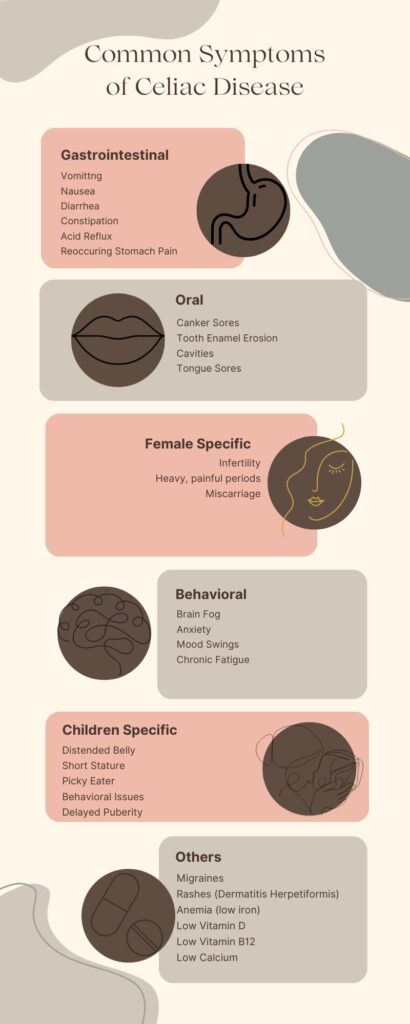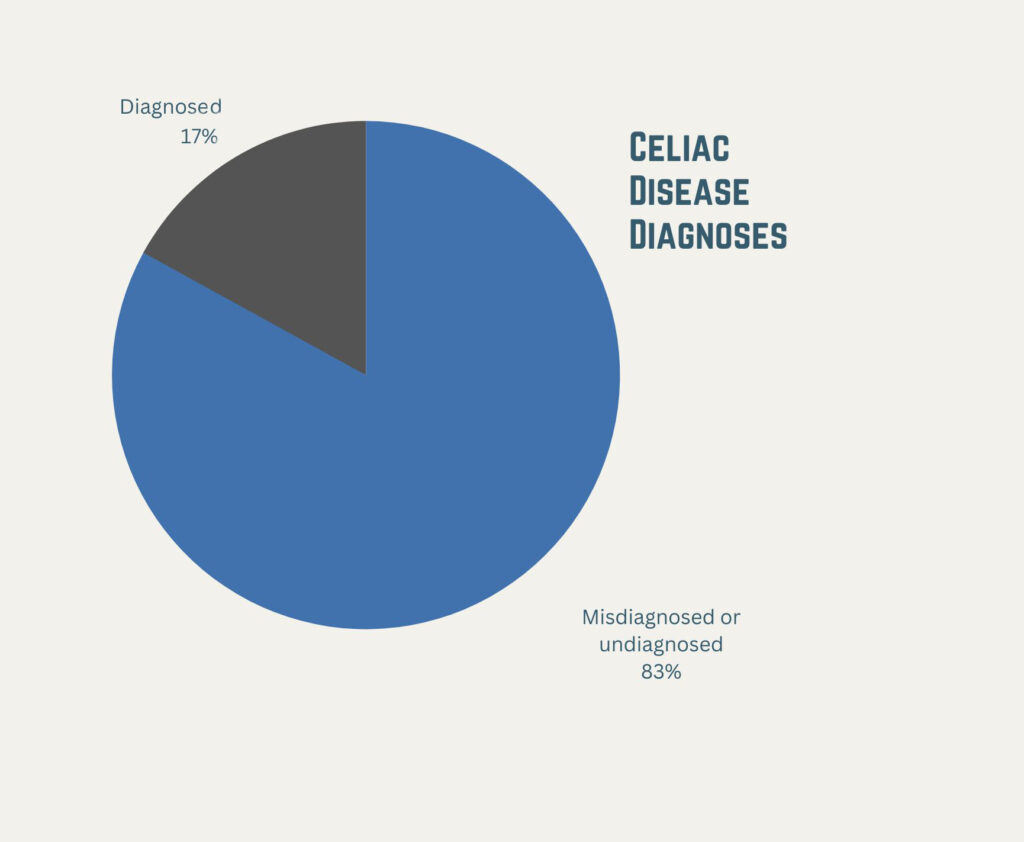Stomach aches and all the rough gastrointestinal issues that go along with them are what most people think of when they hear celiac disease. It is probably shocking then to learn that there are 200 or more physical symptoms that are attributed to celiac disease. Some people don’t experience any stomach issues and some people report feeling no physical symptoms at all. Because these symptoms vary so widely from person to person sometimes it can make receiving a Celiac Disease diagnosis very difficult. In fact, a study done by Loyola Medicine finds that people with classic GI symptoms are generally diagnosed within 2.3 months while the average patient with no gastrointestinal problems usually has to wait three and a half years before being diagnosed.

Common Celiac Disease Symptoms
Some of the more common symptoms of Celiac Disease are gastrointestinal distress, such as, nausea, vomiting, gas, diarrhea, and heart burn. That is probably why most people immediately think of these types of issues when they think about Celiac Disease. Another well-known symptom of Celiac is a chronic, very itchy rash known as Dermatitis Herpetiformis. Even though Celiac presents itself with an external rash in this case, the treatment is still the same, a strict gluten-free diet.
Less Common Celiac Disease Symptoms
Some of the lesser-known symptoms of Celiac Disease are brain fog, chronic fatigue, infertility or other female issues, migraines, vitamin deficiencies, canker sores, and for children, failure to grow or behavioral issues, just to name a few.
No Noticeable Symptoms
Some people, have no noticeable physical symptoms and are stunned when they receive their Celiac Disease diagnoses. This is often referred to as “Silent Celiac”. However, once on a strict gluten-free diet it is not unusual for people to realize that they did have some of the less common symptoms, but didn’t realize that they were being caused by Celiac Disease.

Advocating for Diagnoses
The bottom line is that some in the medical community are uninformed about the symptoms of Celiac Disease, so unfortunately, it is sometimes up to the patient to fight for testing and diagnoses. If you or your children have any unexplained physical symptoms it is your right to ask to be tested for Celiac Disease. If your doctor refuses and you can change practitioners it may be worthwhile to do so. If you can’t change doctors because of insurance or some other reason and they refuse your request for testing you can ask them to note in your chart that they have refused. This may motivate a physician to change their position on ordering those tests. You are worth fighting for!



